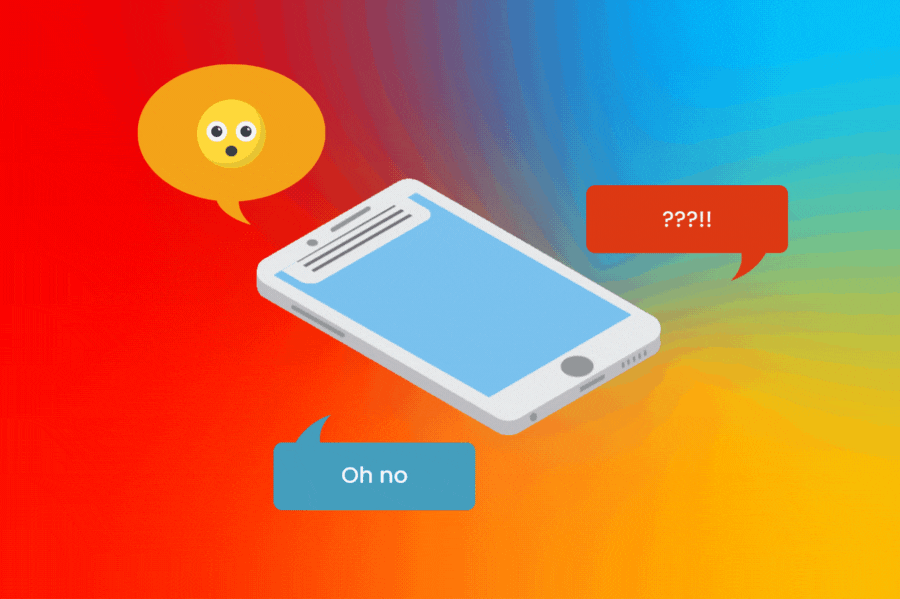The Worst Social Media Strategies That Failed
Social media marketing makes it easier to leverage the personal aspects of digital. The customer’s subconscious is online… and it’s up to the marketer to access a winning strategy.
A recent study found that 94% of customers will purchase from brands that offer complete transparency. In the same study, over 50% responded that a firm that stretches the truth, conceals important information, and uses unrealistic imagery is unethical, amongst many other duplicitous marketing tactics.
Discovering an idea or strategy can be executed and perceived in complicated ways that can seriously hurt a brand. Inadequate research and poor strategy development are the primary mistakes made by social marketers. Additionally, misleading programs can completely destroy a brand’s credibility. Our industry provides flexibility in both content and voice in comparison to conventional marketing platforms, as well as extending reach.
These blunders can be ridiculously costly. We are lifelong learners; the easiest way to avoid the same mistakes is taking lessons from the past. Here are the worst decisions that led to these social media strategies to fail:
We Don’t Love To See You Smile
Hashtags are great in linking the audience to relevant content across platforms and casting a wider net for discoverability.
This sounds good in theory… but sometimes it can go so, so wrong.
Case in point: McDonald’s #McDStories. Usually, the Golden Arches are a trend setter for their advertising strategies. However, marketers were left scrambling to brainstorm alternative careers after this campaign in 2012.
Twitter users were invited to share their experiences at McDonald’s. People can be fickle. Thus, channels were flooded with horror stories about what happens at the fast-food chain, across the corporation’s 38,000+ locations. After just two hours, the campaign was pulled.
Our own Jason Falls said:
“McDonald’s… had no idea what their true perception in the marketplace was. They didn’t see their brand the way consumers did.”
Images via businessinsider.com
Survivor’s Remorse
This social commemoration bridged disrespectful territory. In 2017, Adidas customers who competed in the Boston Marathon received an oddly worded email and social media post from the shoe and sports attire brand. The headline read, “Congrats, you survived the Boston Marathon!” Only four years before, the Boston Marathon bombing murdered three people and wounded 250 people. An apology was sent quickly afterward, but not before the damage was done.
Boys In Blue Got The Blues
An open invitation for community harmony went very, very wrong. Following the George Floyd incident, the NYPD tried to produce more positive feelings toward the police force by asking users to post photos of themselves with officers. Similar to the McDonald’s social campaign, a trending hashtag was encouraged, this time with the tag #myNYPD.
You can see how this was doomed from the start, especially during a time of social unrest and upheaval. Countless users volunteered the hashtag to continue posting on police brutality and wrongdoings.
Texas Flood
Here was a marketing fail caused by bad timing.
Airbnb launched their “floating world” campaign, which featured an image of a water-theme house floating on the surface of a lake. The copy stated: “Stay above water,” and “live the life aquatic with these floating homes.” Too bad the campaign was launched and published on the same day that Hurricane Harvey engulfed Houston, causing nearly 100 deaths across its devastating path.
Image via medium.com/@praveensivakumaresan
Dove Wants To Fly Away
Dove deserves all the backlash for a four panel image showing a young Black woman removing her shirt. On the final panel, a white woman is revealed. The ad quickly began trending across Twitter and Google as “Dove racist ad.” Dove countered that the ad was intended to show “the diversity of real beauty.” Consumers didn’t buy it and the company was forced to apologize numerous times. Moral of the story: if you’re wrong, own up to it. Unlike the recent antics of Kanye West…
Now Nobody Loves Kanye
This is more about how not to put out a dumpster fire. After Kanye West was embroiled in anti-Semitic controversy, West doubled down, acquiring conservative social media platform Parler. Twitter banned him, causing Elon Musk to promise a return of the once great ‘Ye. The Tesla mastermind also backed down his comments, claiming he “expressed my concerns about his recent tweet, which I think he took to heart.”
West is a business unto himself, with numerous people in his employ. Since taking to both digital and traditional outlets, Gap, Adidas, CAA, and numerous others have severed ties, cutting his net worth in half. Brands have also announced extensive job cuts following the split. As of this writing, West’s continuous hate speech continues to trend.
Yellow Starbucks
Advertising their blonde espresso was bungled from the start. Starbucks — a company already associated with green — decided to change their landing page to a bright yellow. This is about as confusing as altering the Target red to something else. It doesn’t really make sense.
Then, the copy on the site read: “Who says espresso has to be intense? We have for 43 years. But we’re Starbucks Coffee Company. So we did the exact opposite.”
What?
The jittery writing of an over-caffeinated intern was quickly ridiculed by readers, as were any posts involving buying a “tall blonde.”
Post The Copy Below At 4 est.
Beware influencer marketing. Though this strategy can be very beneficial, vetting users to make sure their values and goals align with your brand is vital. The whole purpose of the partnership is for their endorsement to feel organic and natural. Unfortunately for Bootea Shake, Kardashians star Scott Disick was not the right fit. Neither did he give much effort into the collaboration. Scott copy and pasted the company’s suggested caption for a promotional photo on Instagram, with the posting and publishing instructions still in the text.
Image via mashable.com




